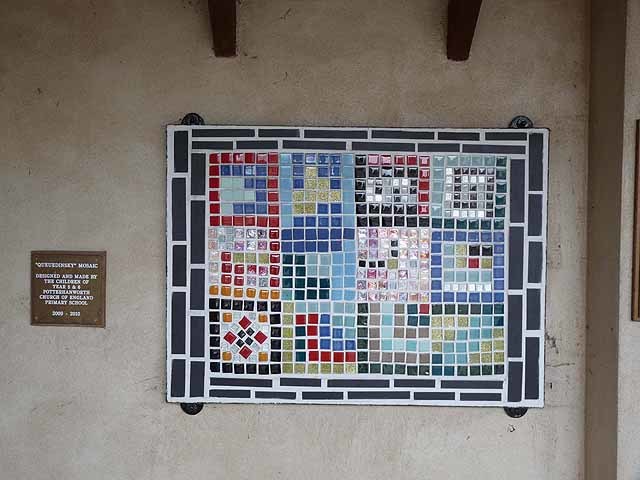Cover The Wall With Square Tiles
 To reduce greasy splatters and messy spills, Ann wants to install a backsplash behind her stove. She needs to cover a region that stretches 27 inches by 81 inches. She has several mosaic tiles of different sizes. The red tiles measure 9 inches by 9 inches, the blue tiles measure 18 inches by 18 inches and the green tiles measure 27 inches by 27 inches. How many different ways can she tile her space?
To reduce greasy splatters and messy spills, Ann wants to install a backsplash behind her stove. She needs to cover a region that stretches 27 inches by 81 inches. She has several mosaic tiles of different sizes. The red tiles measure 9 inches by 9 inches, the blue tiles measure 18 inches by 18 inches and the green tiles measure 27 inches by 27 inches. How many different ways can she tile her space?
Image credit: Wikipedia
The answer is 595.
This section requires Javascript.
You are seeing this because something didn't load right. We suggest you, (a) try
refreshing the page, (b) enabling javascript if it is disabled on your browser and,
finally, (c)
loading the
non-javascript version of this page
. We're sorry about the hassle.
Firstly, observe all the measurements are divisible by 9 inches, so divide by that. Now the red tiles are 1x1, the blue tiles 2x2 and the green tiles 3x3. The stove space to be tiled is 3x9 . Much neater!
Polya said: if you can't solve a problem, start by solving a simpler problem. Let f(n) be the number of ways of tiling a 3 x n space.
Experiment on paper, draw out all combinations. Find that f(1) = 1, f(2) = 3, f(3) = 6 and f(4) = 13
Stop and think. There's a recurrence relation for f. Given any 3 x n tiling, consider the rightmost column. Either the right most column is (a slice of) a 3x3 tile, or it contains a 2x2 tile, or it is exactly three 1x1 tiles. Thus
f ( n ) = f ( n − 3 ) + 2 f ( n − 2 ) + f ( n − 1 )
The middle term is doubled because there are two ways to cover a 3x2 space with a 2x2 tile and two 1x1s.
Compute (on paper or Python) f(9) = 595